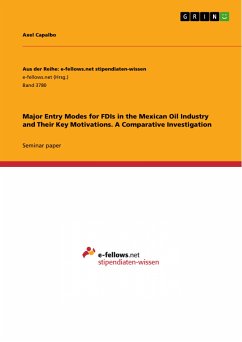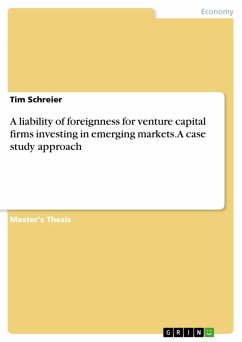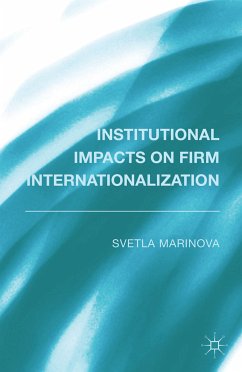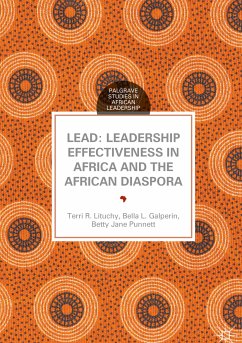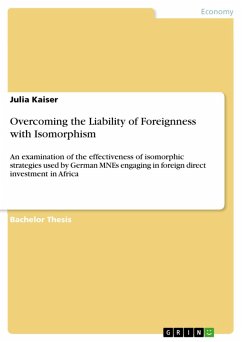
Overcoming the Liability of Foreignness with Isomorphism (eBook, PDF)
An examination of the effectiveness of isomorphic strategies used by German MNEs engaging in foreign direct investment in Africa
Sofort per Download lieferbar
Statt: 27,95 €**
18,99 €
inkl. MwSt. und vom Verlag festgesetzt.
**Preis der gedruckten Ausgabe (Broschiertes Buch)
Alle Infos zum eBook verschenkenWeitere Ausgaben:

PAYBACK Punkte
0 °P sammeln!
Bachelor Thesis from the year 2020 in the subject Business economics - Business Management, Corporate Governance, grade: 1,0, Jacobs University Bremen gGmbH, course: IBA, language: English, abstract: The "liability of foreignness" (LOF) describes the additional costs that a firm operating in a market overseas incurs compared to the domestic firms. In recent years, researchers have laid the foundation for multiple theoretical approaches that aim to overcome the LOF. However, there is still a considerable research gap concerning actionable strategies MNEs can apply in practice. Building on the w...
Bachelor Thesis from the year 2020 in the subject Business economics - Business Management, Corporate Governance, grade: 1,0, Jacobs University Bremen gGmbH, course: IBA, language: English, abstract: The "liability of foreignness" (LOF) describes the additional costs that a firm operating in a market overseas incurs compared to the domestic firms. In recent years, researchers have laid the foundation for multiple theoretical approaches that aim to overcome the LOF. However, there is still a considerable research gap concerning actionable strategies MNEs can apply in practice. Building on the work of these researchers, this thesis aims at contributing to the current literature by taking the perspective of institutional theory. In particular, it examines the effectiveness of isomorphic strategies, inter alias, processes of adaption and imitation of legitimated practices, in reducing the LOF. "We are improving", said the German chancellor Angela Merkel at the G20 Investment Summit in 2019 as she reported on Germany's efforts to encourage private investment in Africa. In an interview with the German ARD public television, she mentioned the "promising numbers" of the German investments in Africa; a continent that promised "more chances than risks". Indeed, although German investments in Africa are still on a low level, Africa's importance to Germany as an external trade partner has significantly increased. However, these opportunities have considerable costs and risks attached. One cost factor that is crucially important for German multinational enterprises (MNE) in Africa, as it is amplified by institutional distance, is the 'liability of foreignness' (LOF). First of all, I use existing literature to construct frameworks to categorize the cost dimensions of the LOF and several isomorphic strategies. Furthermore, using semi-structured expert interviews, this paper evaluates the effectiveness of adaption strategies employed by German MNEs in Africa for different cost dimensions. I argue that isomorphism, i.e., adaption strategies, are of high importance for the success of German investments in Africa. More specifically, I show that networking, the adaption of formal structures, and the adaption to the institutional environment are effective in reducing the LOF by lowering market entry risks, facilitating knowledge acquisition as well as enhancing legitimacy in the host market.
Dieser Download kann aus rechtlichen Gründen nur mit Rechnungsadresse in A, B, BG, CY, CZ, D, DK, EW, E, FIN, F, GR, HR, H, IRL, I, LT, L, LR, M, NL, PL, P, R, S, SLO, SK ausgeliefert werden.




